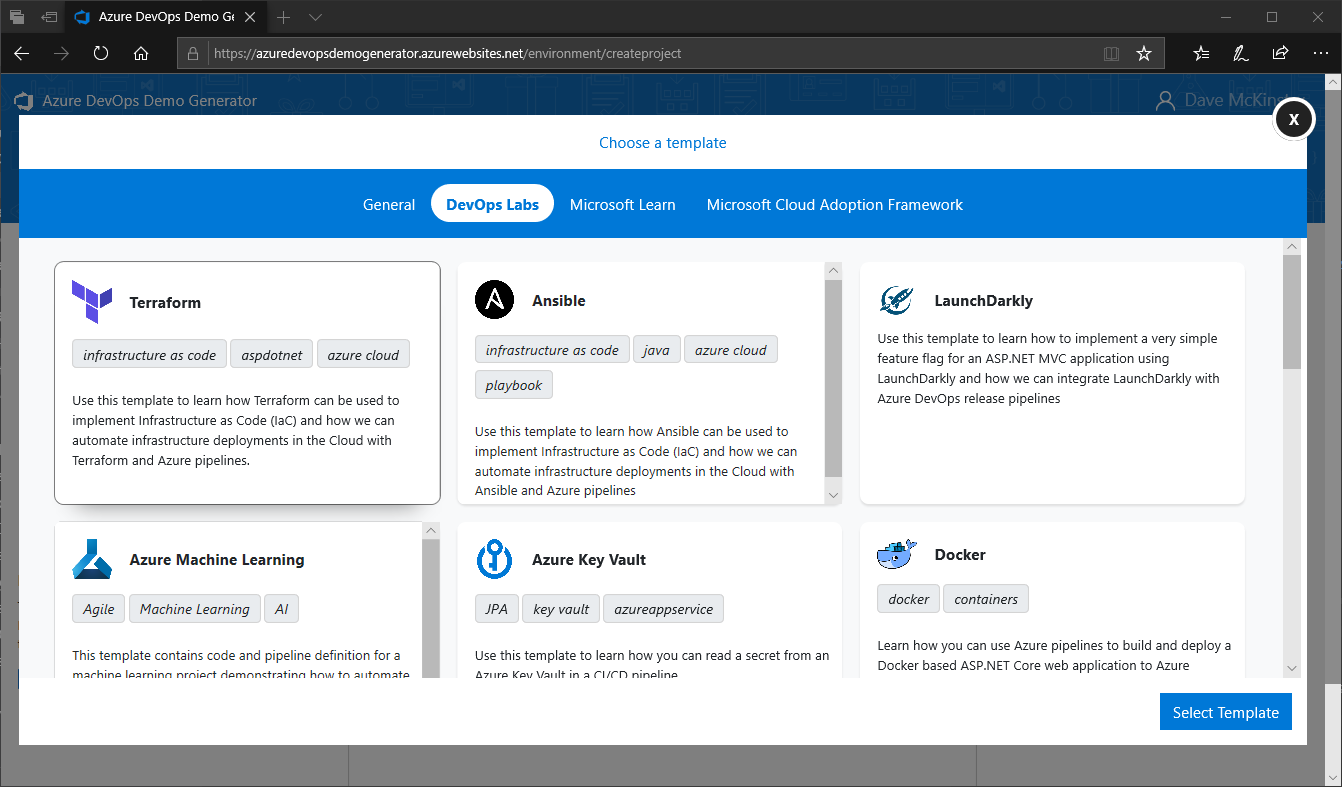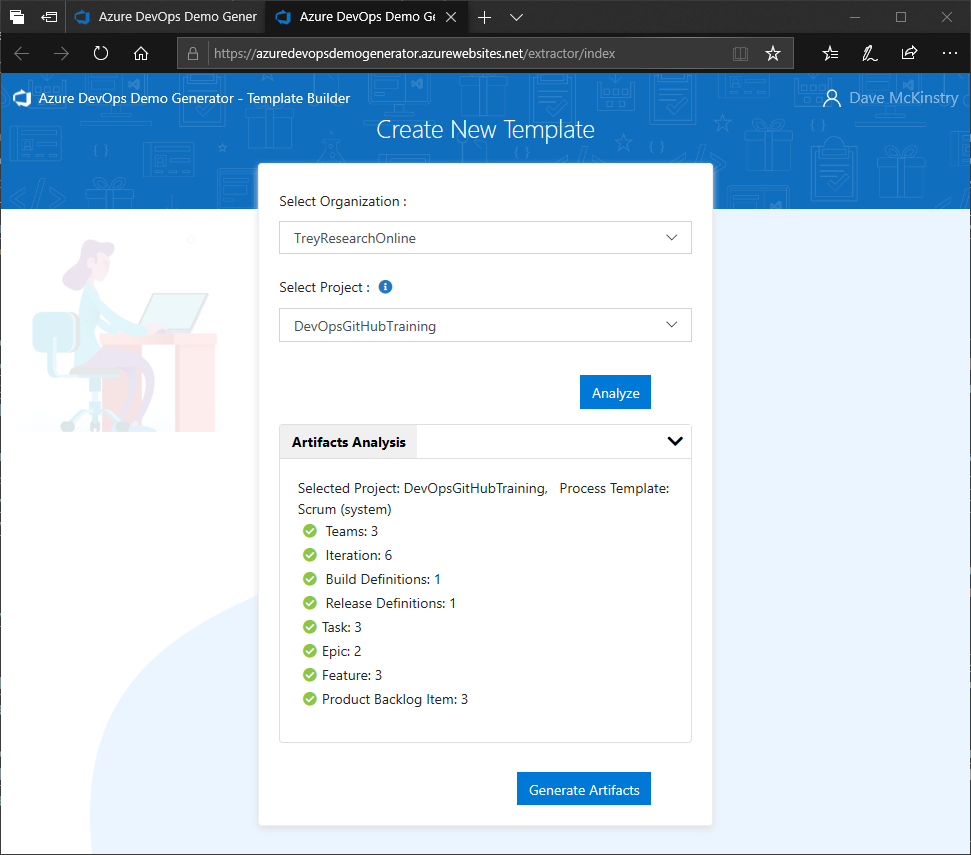The Azure DevOps Demo Generator is a community operated service which can provision template-based projects inside your Azure DevOps organization. It was originally created for Microsoft as an educational resource supporting the Azure DevOps Labs. Although it started as a way populate lab projects, it has evolved to support integrations with various third-party DevOps tools including GitHub, Jenkins, Terraform, and many others.

Over the years since its introduction, the generator has also been used to support new offerings from Microsoft Learning and more recently the Microsoft Cloud Adoption Framework. Various other teams inside Microsoft also use the generator for custom training and hackathons.
A common customer request has been for more real-world examples of automating Azure DevOps using REST APIs. To help with this, today we have published the source code for Azure DevOps Demo Generator on GitHub under the MIT License.
Another common request from customers, partners and trainers is the ability to create custom templates for provisioning their own training environments. Today we are also making Custom Templates available in the Azure DevOps Demo Generator service.

You can find more information on custom templates here on GitHub. You are welcome to create and use custom templates for your own purposes. Create training, challenges, hackathons, for your own purposes.
Once the templates have been created, they can be provisioned by uploading them from the Private tab when choosing a template.
NOTE: Custom templates are not designed for “project copy” or “migration.” The generator only supports a subset of Azure DevOps artifact types and does not scale to production-level projects (e.g., large numbers of work items).
Now that the source for the Azure DevOps Demo Generator is public, you can fork it and use it to learn the Azure DevOps APIs or as a foundation for you own Azure DevOps automation tools. We look forward to your feedback on this community operated service as GitHub issues and your other contributions as pull requests. Please Refer to the project contribution guidance for more information.

0 comments